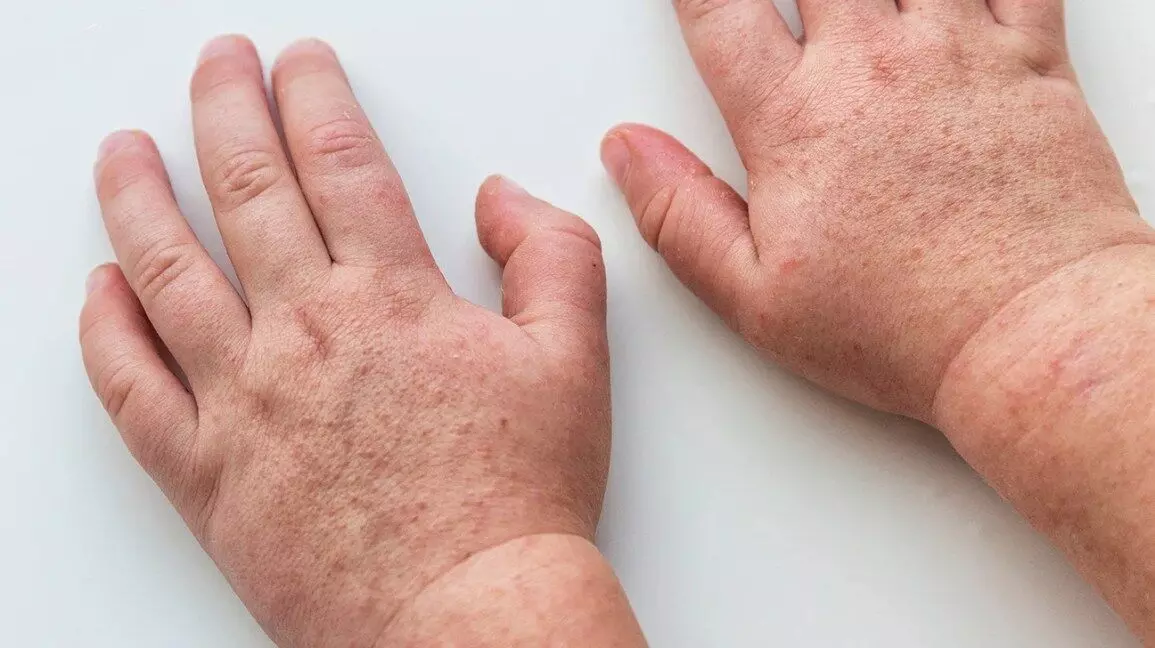Mumps, scarlet fever resurfacing in Hyderabad: Is dry weather to blame?
Doctors advise parents and children to exercise caution as the exam season is on
By Sulogna Mehta
Hyderabad: Whether it is the prevalence of an excessively dry climate, pollution, a spurt of pathogens in the air or any other reason, the city is seeing a re-activation of forgotten diseases such as mumps and scarlet fever, which were common a couple of decades ago.
Scarlet fever and mumps are among those infections making a comeback in the city. Interestingly, both these diseases affect children and teenagers rather than adults.
Rise in pollution
Though cases of vector-borne diseases like dengue and malaria have been minimised, the dry weather and the complete absence of rains for nearly three months in Hyderabad has seen an increase in dust and pollution in the air, which brought with it certain ailments as well.
City doctors point out that while they got many cases of mumps till early this year, in February and March, cases of scarlet fever have resurfaced, mainly in the 5 to 15 years age bracket.
Doctors advise parents and children to exercise caution as the exam season is on. Apart from these fever cases, dry eyes, dust and pollen allergy cases are also frequently found among people, especially due to the dry spell.
Scarlet Fever: symptoms and seriousness
“It is important to remember that the highly contagious bacterial infection scarlet fever should neither be addressed with self-medication nor should be neglected. It needs to be treated by a doctor. If the symptoms are neglected, over a time ranging from a few weeks to a few years, patients will develop kidney problems and heart ailments respectively, which can be fatal,” said general physician Dr Saketha Reddy.
Speaking about the symptoms of scarlet fever, she said, “The main symptom is throat pain caused by streptococcal bacteria. It is accompanied by high-grade fever, cough and small red colour rashes. Since the rashes are small, dry and of course texture, they are also referred to as sandpaper rashes due to their resemblance. Sometimes redness of the eyes may persist. Another symptom is the occurrence of small red spots on the tongue, which is called ‘strawberry tongue.’
Prompt treatment with antibiotics
Unlike chicken pox, scarlet fever has no preventable vaccines.
If symptoms persist, treatment with antibiotics is required for the bacterial throat infection and paracetamols to bring down the fever. Patients should be given a nutritious diet and a lot of oral fluids to avoid dehydration. Treatment should not be delayed as patients may develop kidney problems and heart issues if left unattended, said Dr Reddy. With proper treatment, symptoms subside and patients recover within a week or two.
Even though scarlet fever rarely affects adults, since it is contagious, parents or caregivers must wear masks and observe hand hygiene to prevent any infection. Till the child gets completely cured, they should not be sent to school and household articles like utensils and towels should not be shared with the patient to avoid contamination.
Dos and don’ts in dry weather
To stay safe, especially given the uncertain weather conditions and rising temperatures, doctors list some easy-to-follow dos and don’ts for people.
- Wear a surgical mask while doing any indoor or outdoor cleaning activity that generates dust and wash the hands after cleaning.
- To tackle infections, gargle in lukewarm salt water every day, especially in the mornings and after coming home from outdoor work or commuting in traffic.
- Avoid outside food, especially from roadside stalls, which gather a lot of dust and germs and are often not hygienically prepared.
- Use umbrellas and hats, apply sunscreen on the face and bare skin and wear full-sleeve cotton clothes while going out in the sun.
- Stay hydrated by drinking lots of room temperature water and other fluids like coconut water, buttermilk, homemade fruit juices etc.
- After coming back indoors from the heat, do not consume cold water immediately and do not directly rush inside an air-conditioned room; first, acclimatise yourself to normal room temperature.